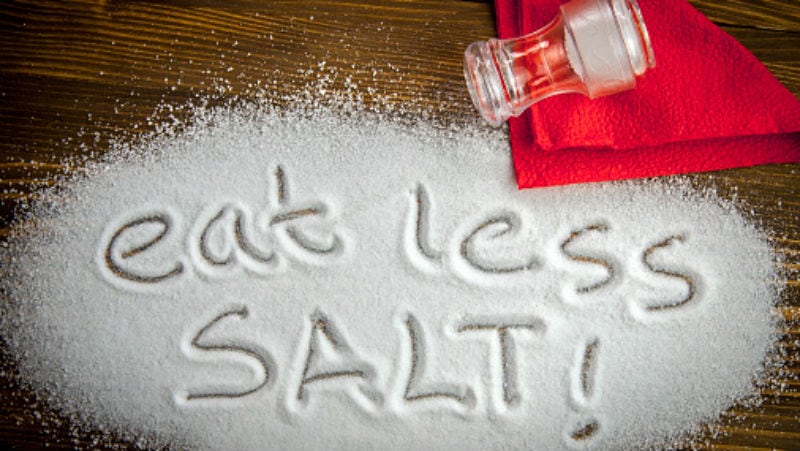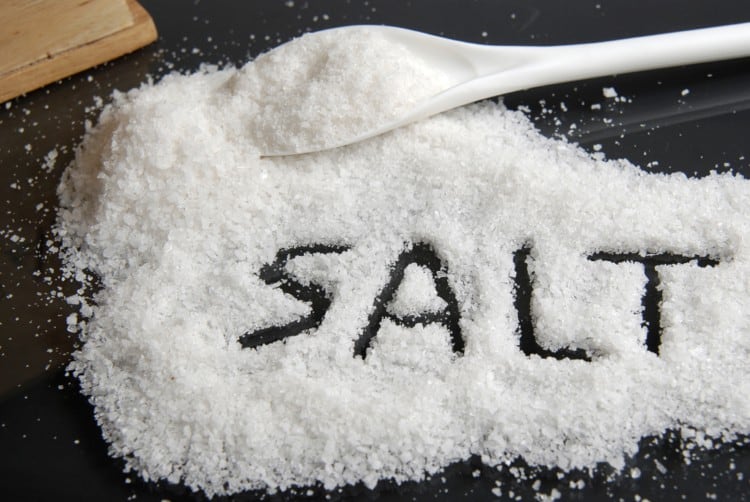1)Sugar taxes in ASEAN
Sugar taxes were one of the hottest topics in the APAC F&B industry across the past year, especially in the South East Asian region.
Malaysia joined the fray with a sugar tax implementation on July 1 2019, and although Singapore did not enforce outright taxation, it took the more cautious steps of introducing mandatory colour-coded front-of-pack nutrition labels and banning advertising for pre-packaged sugar sweetened beverages (SSBs) later in the year.
As industry and academics continue to debate the benefits and outcomes of such a levy, the one thing that most parties agree on is that consumer attitudes are the main driver for any real transformation to occur either way.
“We will certainly see more countries in APAC and those already implementing them, increasing their taxes in this area moving into 2020, but [government] communications on these will also be critical if this is to change consumer’s behaviors at a more rapid rate,” Nielsen Southeast Asia Managing Director Vaughan Ryan told FoodNavigator-Asia.
“Most retailers or manufacturers have worn the tax increases to date with the exception of RTD coffee and RTD tea.
“We found in a recent study in Thailand that less than half the people were aware of the initial sugar tax, [and] we don’t see any clear consumer behavior change coming from the sugar tax. So unless manufacturers decide to increase their prices, which may eventually happen, we won’t see any major impact on consumers.”
What is optimistic though, is that this change is already occurring – and sugar taxes may not be the driving reason for it.
“I think we need to be careful of assuming that government taxes have had a direct impact on [health outcomes],” said Ryan.
“They certainly will play a role, but consumer trends towards healthier, non/low sugar alternatives have been growing for some time now. If anything, it may speed up this trend but will not be the direct cause of it.”
2) Salt taxes in Thailand
Zooming in on another area of taxation, excise taxes on high-salt products have been mentioned more and more frequently in the region as of late, and particularly in Thailand.
“Thailand, by the Department of Excise and some health professional groups would like to impose salt tax on certain categories of food products,” Food Science and Technology Association of Thailand (FoSTAT) Chairman Assistant Professor Anadi Nitithamyong told us.
“At the moment two categories stand out [as the most likely to be taxed]: Instant foods e.g. instant noodles, instant porridge, and Savoury snacks.
“It is rather difficult to gauge how soon the tax will be implemented. It really depends on the 'push' [from various parties and stakeholders].”
That said, despite any amount of ongoing discussion, Prof Nitithamyong cast doubt on this going through or being implemented very quickly.
“In my opinion salt tax is more complicated than the implemented sugar tax in sugar sweetened beverages in sealed containers,” she added.
“There are several issues involved including the fact that Thai people consume [just] around 20% or so of their diet from packaged foods, [whereas] the rest is from home cooking and different types of vendors/food service.
“[The use of salt] is also [very] different among products, even in the same category, in terms of quality and taste preference by consumers, [which] making salt replacement a technical challenge.”
It also remains to be proven whether this would be the right move, especially as even the more mature sugar tax implemented in the country has yet to show solid outcomes.
“Overall I believe that everybody, including the food industry, agrees that hypertension is a public health problem and the consumers need to curb their salt (sodium) intake, and something has to be done. However, salt tax may not necessarily be the right answer,” Prof Nitithamyong concluded.
3) Health Star Rating system
Oceania food regulatory body Food Standards Australia and New Zealand’s (FSANZ) Health Star Rating (HSR) system has also been the subject of deep controversy in the country, and especially in 2019 for reasons ranging from its voluntary status to unhealthy products receiving high star scores.
Ministers of the Australia and New Zealand Ministerial Forum on Food Regulation recently completed a five-year review of the system in November 2019, and concluded that the system would remain voluntary, although suggested hypothetical improvements such stricter governance in areas such as sugar, sodium and dairy were suggested to ‘increase efficiency’.
“[Ten] recommendations for enhancements to the system including improved governance arrangements, improved monitoring arrangements, strengthened and combined guidance documents, changes to the way the HSR is calculated, and an uptake target of 70 [were] made in the review report,” said an Australian Department of Health (DOH) spokeswoman, who declined to be named in response to our queries.
“Forum Ministers have supported the majority of recommendations, [including that] the system remain voluntary, with options for interim targets in the [next] five-year period.”
As such, moving forward into 2020, the system will remain voluntary despite hopes to the contrary.
In New Zealand, further action will be taken to encourage greater uptake of HSR by food and beverage companies as part of the country’s upcoming anti-obesity action plan, to be implemented jointly by industry and government after months of delay.
4) Hemp regulations in APAC
Hemp was approved as a food product in Australia in 2017, and in New Zealand in 2018, but for the rest of the region, the regulatory landscape is not quite clear just yet.
“To be a food product, the food must be made from hemp seeds, any denatured hemp seeds. In Australia and New Zealand, these must be dehulled so it can’t be planted or grown,” Georgia Branch, Co-Founder of hemp-based products companies Hemple and Soul Seed told us.
“In the United Kingdom for example, you could use whole seeds, but that’s not happening here just yet.”
As for other APAC countries, Branch sees China and Thailand as the two countries with the most potential for hemp regulatory developments to take place moving forward into 2020, especially with the latter having recently approved the use of hemp extracts (with low psychoactive compound content) in areas such as drugs and herbal products.
“It’s great to see Thailand leading in this area within South East Asia, and it’s the start of something for sure. Globally like in the United States and Canada, medical cannabis is always the first thing to be legalised, followed by CBD for wellness, and then recreational cannabis and so on,” she added.
“China has a long history of using hemp and CBD, and is one of the largest producers of hemp foods in the world – the crop has been revered for thousands of years in the country.
She also emphasised the necessity for regulatory bodies to put guidelines in place for the industry.
“This is very crucial to prevent the rise of black markets for hemp and CBD – there are many factors to consider like heating the seeds, maintaining quality and so on, so regulations must be in place.
“We’re definitely seeing a rise in demand for hemp in Asia, so as this goes up, regulations are going to progress along with this as well.”
5) Cell-based meats and other novel foods regulations in Singapore
Singapore’s food regulatory body, the recently-established Singapore Food Agency (SFA) views cell-based meats, alternative proteins and other such novel foods as a ‘nascent industry’, and is as such implementing in-depth research on these to determine the appropriate enforcement of any related regulations.
This will also be one of the areas of focus within the also newly-established Singapore Institure of Food and Biotechnology Innovation (SIFBI).
In a statement to FoodNavigator-Asia, SFA said: “As novel foods do not have a history of being consumed by humans as food, they may pose food safety risks and their safety needs to be assessed before they can be allowed to be used in food for sale in Singapore.
“In such a safety assessment, SFA would be interested in the materials that go into the process of manufacturing cell-based meat (such as the type of cells, growth media and scaffolding materials), as well as how manufacturing processes are controlled to prevent food safety risks.”
The SFA spokeswoman, who declined to be named, added that public consultations on these novel foods have been ongoing since 2018, and moving forward the agency will be rolling out a proper regulatory framework to tackle the relevant foods and food ingredients.
“SFA is rolling out the regulatory framework which requires companies to seek pre-market approval for novel foods that do not have a history of use as food,” she said.
“Novel food products will be assessed on a case-by-case basis before import or sale is allowed.”
6) Stagnation of ASEAN food harmonisation efforts
The harmonisation of food laws and standards within the ASEAN region has been in discussion for many years since the 2000s, with minimal results – and it appears that this situation is set to continue into 2020.
According to the ASEAN Consultative Committee on Standards and Quality (ACCSQ) Product Working Group on Prepared Foodstuff (PFPWG), there are four main pillars to this, all of which are aimed at ‘the elimination of technical barriers to trades for prepared foodstuff among member countries’.
These are: Achieving transparency of regulatory regime (led by Thailand), Specifying area for Market Readiness Assistance (led by Indonesia), Enhancing the technical infrastructure (led by Philippines) and Strengthening food safety standards (led by Malaysia).
FoodNavigator-Asia got in touch with senior personnel from within the ACSSQ-PFPWG to find out more, but all queries on progress have gone unanswered as of date of publishing.
Industry experts have cast doubt on any progress of these efforts taking place – and not just in 2020.
“Frankly, I am not so hopeful about harmonization of food and beverage regulations within the ASEAN region,” Prof Nitithamyong said.
“The disparity in regulations across borders will continue to affect the industry [as long as] the importance of harmonised regulations [is not recognised].
“[So far, it is] policies as well as a Mutual Recognition Arrangement (MRA) on prepared foodstuff designed to enable Member States to accept food control inspections and certifications system in order to remove technical barrier to trade.”
The Ministry of Health Malaysia also announced in August 2018 that the ACSSQ-PFPWG would be looking into the area of nutrition labelling harmonisation.
“Nevertheless, I am hoping that at least we will see mutual recognition of one another’s regulations to facilitate the flow of products in the region,” Prof Nitithamyong said.





